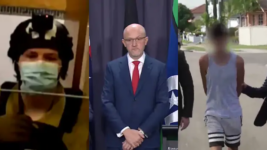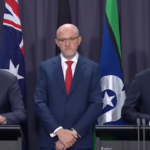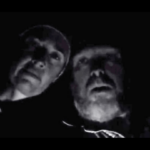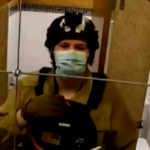Five Eyes Nations Collectively Warn of Rising Online Youth Radicalisation

The intelligence and law enforcement agencies of the Five Eyes nations released a joint communique late last week, in which these bodies warn about the rising threat of youth radicalisation, and in particular “minors who support, plan or undertake terrorist activities”, as these kids “can pose the same credible terrorist threat as adults”.
The document further outlines that the Five Eyes has taken the unprecedented measure of issuing a collaborative public paper, as these nations have been seeing a prominent rise in “young people and minors” involved in terrorism offences over recent years.
The Five Eyes is an alliance between the nations of the Anglosphere: the US, the UK, Canada, New Zealand and Australia. And the basis for this cooperation between the English-speaking nations is the 1946 US/UK agreement, which was later broadened to include the other three countries.
To coincide with the release of the multinational analysis regarding the “radicalisation of minors” late last week, ASIO director general Mike Burgess and AFP commissioner Reece Kershaw released their own joint statement, outlining that there needs to be a whole-of-society response that includes early intervention, along with the limiting of “the accessibility of violent extremist material” online.
Burgess further warned that every incident that’s been classified or suspected of being a terrorist act this year – prior to last week’s synagogue fire in Melbourne – have all been allegedly perpetrated by youths under the age of seventeen. And both the ASIO boss and Kershaw add that the joint paper will inform the upcoming redrafting of the nation’s counterterrorism and violent extremism strategy.
After school terror plotting
“The fact that the Five Eyes have chosen youth radicalisation for our first public research collaboration indicates how concerning, escalating and pressing this challenge is,” ASIO boss Burgess said as part of his 6 December joint statement with Kershaw.
“Around 20 percent of ASIO’s priority counterterrorism cases involve young people,” the top spy continued.
“In every one of the terrorist attacks, disruptions and suspected terrorist incidents in Australia this year, the alleged perpetrator was a young person.”
The Five Eyes paper regarding youths online outlines the difficulties in investigating these “digital natives”, as they interact with both youths and adults online, within an environment that makes the distribution of “violent extremist content” easy, particularly when encrypted, and spooks find engaging with minors more difficult than with adults online, including when assessing their intent.
Kershaw told the press that he’s concerned about the number of youths under the investigation of the Joint Counter Terrorism Team (JCTT). The commissioner added that since 1 January 2020, the AFP has investigated 35 terror suspects under the age of 17 years old, with 57 percent of these youths then having been charged with related criminal offences. And the youngest such suspect was just 12.
“As a parent, the numbers are shocking,” Burgess added. “As an intelligence officer, the numbers are sobering.”
Selective memory
As for evidence of its position, the Five Eyes paper provides case studies for each of the countries that comprise it.
Australia had two such examples. The first involved a 16-year-old white supremacist plotting crimes, like mass killings online, who went on to be convicted and sentenced to 18 months inside, with non-parole set at 14 months. The other saw a 14-year-old threatening to shoot up his school online, as well as having been involved in racist incidents. His actions resulted in a 2-year good behaviour bond.
Sydney Criminal Lawyers has been tracking criminal incidents in this state over the past year that have potentially appeared to be terror-related, along with the inability or reluctance of Australian authorities to class such crimes when committed by Anglo Australians, or those of European descent, as terrorist in nature even when they appear to reflect such classification.
On 5 January, an Anglo Australian man openly supporting the movement for a Free Palestine had a makeshift bomb left on his vehicle in his carport, with a note attached ordering him to take down his Palestinian flag or else. But on arresting a middle aged Israeli Australian man, this was then deemed a nonterror act.
A 40-year-old white Australian man went on a killing spree using a large knife at a Bondi Junction shopping mall on 13 April. NSW police outlined that he appeared to be targeting women, which mimics the behaviour of similar incidents perpetrated by men associated with the misogynistic and far-right-leaning incel movement. And this mass murder was too deemed a nonterror incident.
Two nights later, however, a 16-year-old Arab Australian boy nonfatally stabbing a well-known Christian priest and his offsider in a church in Waverley, appeared to pose NSW authorities no problem in designating it terror attack as it was perpetrated by a Muslim.
This stabbing incident then led to 400 police officers carrying out a series of raids across Greater Sydney on 25 April, which resulted in five Muslim teens being taken into custody and charged with terror-related offences. These kids were aged between 14 and 17 years old. And as there were no detailed terror plan found, it would appear these youths have been charged over thought crimes.
Three incidents then occurred midyear in NSW that appeared to have all the hallmarks of terrorism being perpetrated by young Australian white supremacists, which did lead to a difficult time for authorities as they had to challenge their long-term habit of avoiding the designation of white crimes as terrorism.
A 19-year-old Anglo Australian man entered the electoral office of a Labor MP in June, holding a knife and planning to behead the politician, prior to changing his mind. This man had posted a far-right white supremacist manifesto online and he was subsequently charged with planning and preparing a terror act, contrary to section 101.6 of the Crimes Act 1995 (Cth), which carries life imprisonment.
Despite being aware of a 14-year-old white teen who’d threatened to carry out a “Christchurch-style” attack at his school and having been charged with terrorism in the past, when the boy stabbed a 22-year-old Chinese man in the back at Sydney University on 5 July, NSW police then appeared quite reluctant to class the boy as a terrorist.
And when a 21-year-old white Australian man set off homemade plastic bottle bombs in the restrooms at a shopping mall in Miranda later that same month, law enforcement outlined that his ideological outlook was too confused to class him as a far-right actor, however it was quick to lay two terrorism charges against his name.
Ongoing encryption busting
In concluding, the Five Eyes report explains that minors are just as “credible a terrorist threat as adults”, with some “attracted to violent extremist content and ideologies”, especially when they’re available online, and it further recommends “a renewed whole-of-society response to help identify and deal with the radicalisation of minors and minors involved in violent extremist activities”.
In terms of the local scene, Kershaw adds that as the authorities are monitoring the JCTT youth caseload, they’re noticing “the same extremist propaganda videos across multiple unrelated investigations, and this suggests that links exist in the online environment across platforms such as Discord, Telegram and TikTok.”
The platforms raised by the AFP boss are all encrypted, and the Five Eyes has been aiming to bust through encryption since it released a 2017 communique detailing this aim, while Burgess appeared on the ABC in September this year, to complain that despite the Coalition having enacted laws to bust through encryption in 2018, Big Tech companies are resisting its approaches in this regard.
Yet, the latest Five Eyes paper and the ASIO-AFP statement neglect to mention that, as a sizeable number of violent incidents have occurred in NSW over the last months that trigger questions around terrorist motivations, the wholesale massacre and starvation of the Palestinians of Gaza by Israel has been underway, with our pollies long having made excuses for the extreme violence.







